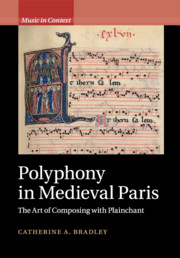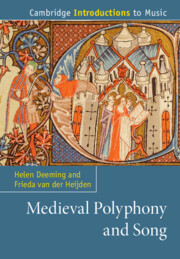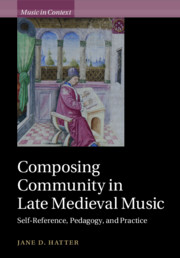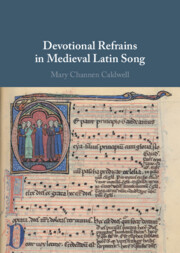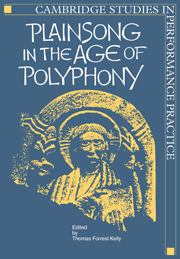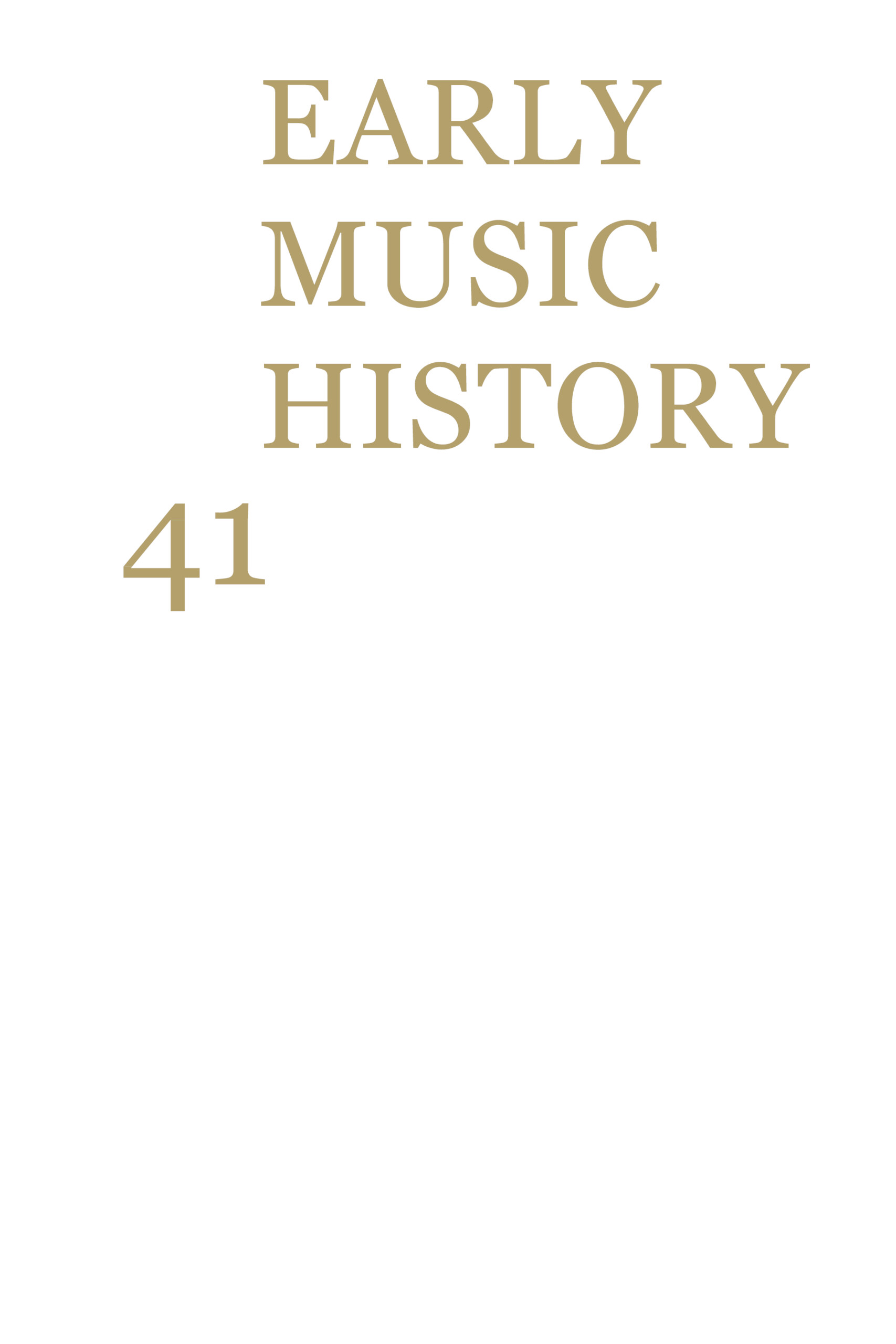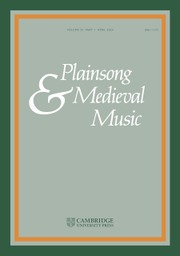Polyphony in Medieval Paris
The Art of Composing with Plainchant
£30.99
Part of Music in Context
- Author: Catherine A. Bradley, Universitetet i Oslo
- Date Published: January 2020
- availability: Available
- format: Paperback
- isbn: 9781108407571
£
30.99
Paperback
Other available formats:
Hardback, eBook
Looking for an inspection copy?
This title is not currently available on inspection
-
Polyphony associated with the Parisian cathedral of Notre Dame marks a historical turning point in medieval music. Yet a lack of analytical or theoretical systems has discouraged close study of twelfth- and thirteenth-century musical objects, despite the fact that such creations represent the beginnings of musical composition as we know it. Is musical analysis possible for such medieval repertoires? Catherine A. Bradley demonstrates that it is, presenting new methodologies to illuminate processes of musical and poetic creation, from monophonic plainchant and vernacular French songs, to polyphonic organa, clausulae, and motets in both Latin and French. This book engages with questions of text-music relationships, liturgy, and the development of notational technologies, exploring concepts of authorship and originality as well as practices of quotation and musical reworking.
Read more- Proposes a new view of the origins of the motet, a key genre in medieval music that is still flourishing today
- Develops methodological blue-prints to analyse medieval polyphony
- Cuts across established disciplinary, linguistic, and generic boundaries
Awards
- Winner, 2019 Early Music Award, American Musicological Society
Reviews & endorsements
'Catherine A. Bradley's superb new book takes us back to the world of medieval Paris where musicians and poets were experimenting with the ways in which plainsong, polyphony, rithmus and the conventions of liturgical and paraliturgical celebration could be combined, differentiated and subverted. She does this by returning to the venerable question of the birth of the motet, and cognate genres. On the way, she brilliantly reminds us of the importance of the female voice in some unlikely places and, in a virtuosic side glance at the relationship between organum and clausula, comes close to uncovering an entirely new subgenre. Magisterial in every regard.' Mark Everist, University of Southampton
See more reviews'Polyphony in Medieval Paris brings a much-needed analytical perspective to thirteenth-century polyphony. With exceptional acumen, Bradley challenges prevailing narratives about how this repertory emerged and offers fresh insights into the priorities and choices of its composers. Through the new analytical approaches she develops, she also deepens our understanding of issues as diverse as intertextuality and gender.' Rebecca Maloy, University of Colorado, Boulder
'Bradley's book unsettles received views of the thirteenth-century motet and impresses by its powerful combined methodology of incisive musical analysis, and consideration of the material and notational trace. She animates the skilled and serious playfulness of nameless medieval composer-singers, authoritatively exemplifying the broad range of precise and technically advanced skills necessary to engage these fascinating and compositionally complex pieces of music … Of particular note is Bradley's combination of detailed philological inquiry with creative musical imagination. Her hermeneutic lens challenges traditional understandings of the evolution of the motet genre, finding a surprising degree of bi-directional fluidity. This reframing has significant value for broader considerations of compositional process, musical borrowing, and intertextuality in and beyond medieval Paris.' Official citation for 2019 Early Music Prize, American Musicological Society Awards Committee
'… this remarkable study … constitutes an undeniably important contribution to the revival of musicological thought on the motet of Ars Antiqua … the reader will be rewarded by the beautiful immersion it offers in the workshop polyphonic writing of the thirteenth century, and the spectacle offered by the richness and virtuosity of its composition processes.' Gaël Saint-Cricq, translated from Revue de musicology
Customer reviews
Not yet reviewed
Be the first to review
Review was not posted due to profanity
×Product details
- Date Published: January 2020
- format: Paperback
- isbn: 9781108407571
- length: 299 pages
- dimensions: 245 x 169 x 16 mm
- weight: 0.541kg
- contains: 4 b/w illus. 20 tables 61 music examples
- availability: Available
Table of Contents
List of figures
List of tables
List of musical examples
Acknowledgements
Manuscript sigla
Abbreviations
A note on transcriptions and numbering systems
Introduction
1. Plainchant in polyphony: the gradual Propter Veritatem in organa, clausulae and motets
2. Mini clausulae and the Magnus Liber Organi
3. Texting clausulae: repetition and regularity on the Regnat tenor
4. Transcribing motets: vernacular refrain melodies in Magnus Liber clausulae
5. Framing motets: quoting and crafting refrains against plainchant tenors
6. Intertextuality, song and female voices in motets on a Saint Elizabeth of Hungary tenor
7. From Florence to Fauvel: re-reading musical paradigms through a long-lived Iohanne motet
8. Conclusions
Bibliography
Index.
Sorry, this resource is locked
Please register or sign in to request access. If you are having problems accessing these resources please email [email protected]
Register Sign in» Proceed
You are now leaving the Cambridge University Press website. Your eBook purchase and download will be completed by our partner www.ebooks.com. Please see the permission section of the www.ebooks.com catalogue page for details of the print & copy limits on our eBooks.
Continue ×Are you sure you want to delete your account?
This cannot be undone.
Thank you for your feedback which will help us improve our service.
If you requested a response, we will make sure to get back to you shortly.
×
